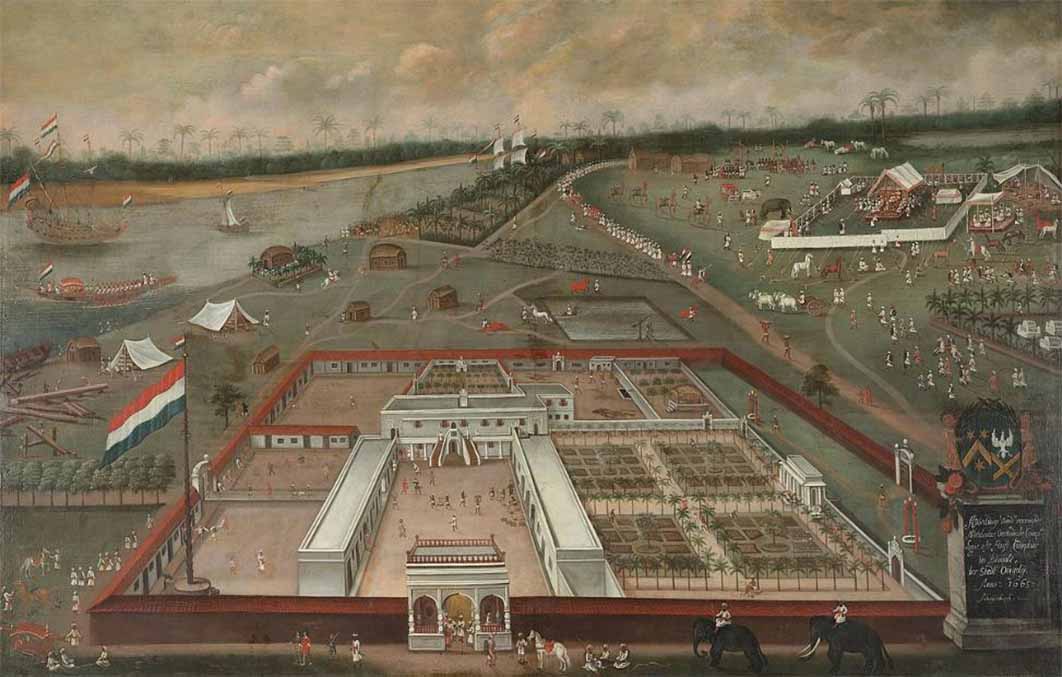
Spice, Spice, Baby: The Dutch East-India Company
Today’s world is run by massive corporations which are ever-present in the lives of everyone on the planet. Everything from computers, software, soft drinks, fast food, coffee and cell phones are branded, product managed, and mass-marketed to within an inch of their lives. Sometimes it seems like humans are just slaves to massive corporations.
It is surprising, therefore, to discover that the size and reach of today’s corporations are but nothing when compared to the biggest corporation of all time. It’s a corporation that is not listed on the New York Stock Exchange, although it was the first company in the world to be publicly traded. It has an unfamiliar and seemingly unpronounceable name (except to native Dutch speakers): the Vereenigde Oost-Indische Compagnie, more commonly referred to as the Dutch East-India Company, or VoC for short.
The word ‘company’ in Dutch East-India Company doesn’t really do it justice. It was absolutely humongous. Let’s put things in perspective; at the height of its powers, the VoC’s net worth exceeded the combined value of Apple, Microsoft, Amazon, and Facebook. Adjusted for inflation, its value would eclipse the current GDP of Germany and Japan put together. The VoC also employed over 70,000 people.
Of course, there was a downside.
Google’s unofficial motto ‘Don’t be evil,’ would’ve been handy for the VoC four centuries ago, because they were, undoubtedly, evil. Although the VoC were initially formed to trade spices with Asia, a business activity that seems inherently non-evil, they also diversified into commodities such as textiles, tea, coffee, and ceramics. To up the stakes in the evil department, they also engaged in slave trading. Not only that, but they were also at the cutting edge of colonial oppression, using threats of violence and political pressure to manipulate the Asian countries with which they traded. The VoC had permission from the Dutch Estates General to raise its own military, make treaties with foreign governments, coin its own money, and even declare war.

VOC soldier uniforms, c. 1783. Image from the Atlas of Mutual Heritage and the Nationaal Archief, the Dutch National Archives. (Public domain)
Would McDonalds invade New Zealand because their government banned the sale of Big Macs? Of course not. The VoC had no such scruples. They actively waged war against sovereign nations, such as Portugal and Spain. The VoC also treated their staff rather worse than most multinationals treat their staff today. It’s almost like the VoC’s unofficial motto was ‘Don’t be ethical.’
Private companies weren’t a new idea, but the high cost and risks associated with outfitting a large-scale trading operation meant that a new way of funding had to be devised. This was how the VoC became the first publicly traded company. However, it wasn’t the first company to issue stock. That honor goes to the Muscovy Company, which was chartered in 1555, and had a monopoly of trade between Russia and England. The other company that would rise to rival the VoC was the British East India Company (of whom more shortly) was established in 1600, which vied for supremacy in the spice trade.
The trade in spices was far from a new concept. The East had sold spices to Europe since ancient times, and Europeans had become extremely fond of these condiments. Spices had been imported through traders traveling the Silk Road for centuries. However, the advent of efficient sea trading routes meant that there was now a faster way for Europeans to get their fix and cut out the middleman.




